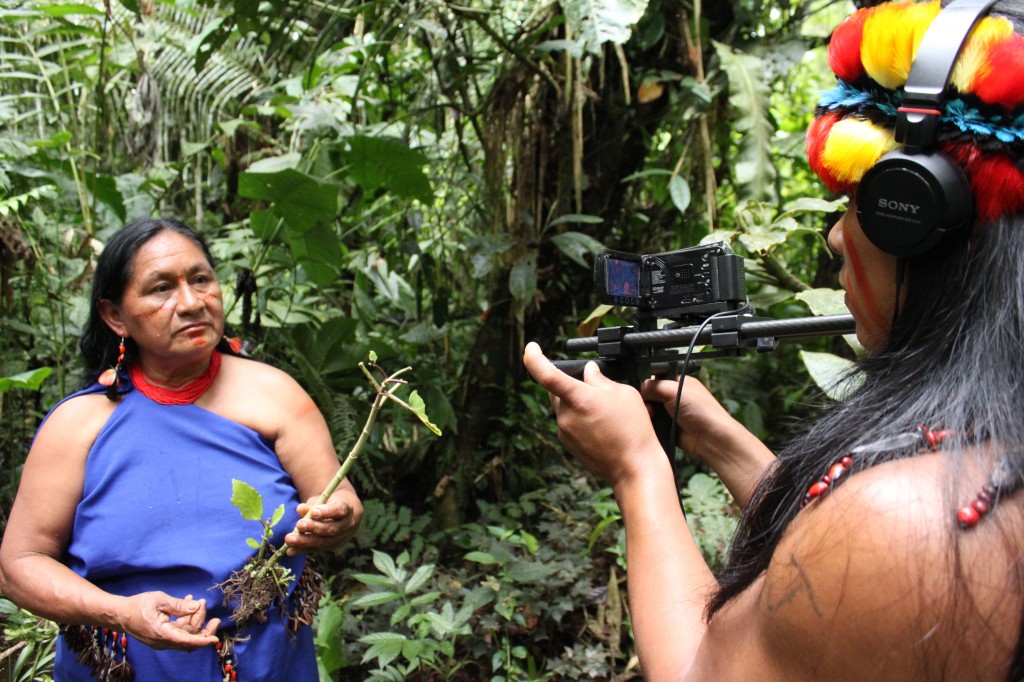Media technologies and professional skills are valuable tools that enable Indigenous communities living in rainforests around the world to communicate about the crisis of deforestation through sharing their stories, language, and art.
Amazon Voice, a great new NGO that is working directly with the local Amazon communities based on a foundation of reciprocity and mutual respect, is giving Tzama, an Indigenous Amazon native from the Tawasap Shuar community in Ecuador, a chance to tell his people’s story, his way.
Tawasap is at risk. “See?” Tzama says, pointing to nearby trees planted by his great-grandfathers. “They are white these days. Normally, they are covered in fur, plants, greenery. Now nothing grows on them.”

Shuar culture, too, is losing knowledge and numbers, but they are committed to preserving cultural memory for generations to come. “We need to document. We need the equipment, there is no more time to waste, the time is now,” says Tzama.
Kantza is a film project envisioned and produced by Tzama and members of the Shuar nation, which can be supported through Kickstarter.
“The things I could show you if I had a long-distance video camera,” says Tzama. Those cameras, along with microphones and MacBooks, will be on the way, thanks to Amazon Voice teaming up with villagers who hope to use new tools like long-distance video cameras to create groundbreaking media projects.
“We want to work together with the world,” says Tzama. “Everyone benefits from the rainforest. Everyone needs to be working together to care for it. We want to show that we, the Shuar, are here, existing, living. We are not calling on you to help us because we are in need. We are inviting the world to collaborate with us to care for the rainforest, to help themselves.”